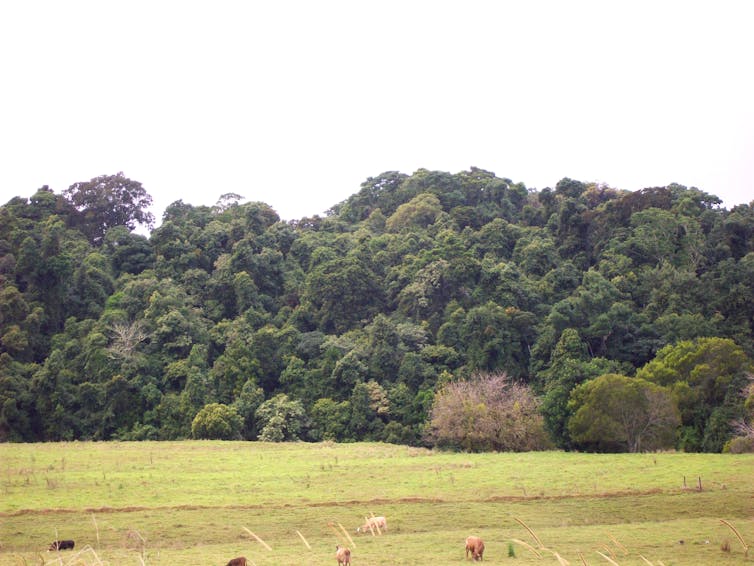A project to construct wetlands at 76 Crooke Street, East Bairnsdale, will have significant environmental and landowner benefits.
The land is owned by Council and currently functions as an open drain, collecting stormwater from surrounding streets and discharging stormwater into Jones Bay. However, transforming it into a wetland will achieve multiple environmental outcomes including:
- 100% removal of gross pollutants, including litter
- 100% removal of suspended solids
- 81% reduction in current phosphorous discharging to the Lakes
- 33% reduction in the current nitrogen discharging to the Lakes.
Mayor Cr Mark Reeves and Councillors met partner agencies Gunaikurnai Land and Waters Aboriginal Corporation, Federation University andEast Gippsland Catchment Management Authority on site last week.
“The project will better regulate surface watermovement and reduce the impacts of flooding,” Cr Reeves said.
“Constructed wetlands are designed to use natural processes including vegetation and soil to
improve water quality. As water moves through the wetland, it is filtered and cleaned through a series of retention ponds. Other benefits of constructed wetlands include reduced water pollution, reduced build-up of nutrients like phosphorous and nitrogen, and habitat provision for plants and animals,” Cr Reeves said.
“The location of the wetlands – adjacent to Jones Bay, an important part of the Gippsland Lakes Ramsar site – makes this a significant project.
“Ramsar sites are internationally significant habitat for migratory bird species. More than 20 species of migratory birds including snipe, sandpipers and terns visit the Gippsland Lakes as part of their annual breeding and resting cycle. Most travel from north-east Asia and Alaska, a roundtrip of approximately 20,000 kilometres. Having freshwater systems such as this adjacent to the Gippsland Lakes is also important for all kinds of species that require freshwater for reproduction and to drink.”
Construction of the wetlands has been identified as a priority project within the Bairnsdale Integrated Water Management Plan (July2021) and the East Gippsland Integrated Water Management Forums Strategic Directions Statement 2022.
In a first for Council, this is a citizen science project that will be coordinated by Federation University and will run in parallel with the construction work itself.
The project has broad stakeholder support and hasbeen developed and co-funded with assistance from a range of partner agencies including $261,000 from the Gippsland Lakes Coordinating Committee and $250,000from the DELWP Integrated Water Management Capital Grants Program.
The project is currently out for tender, with construction planned to start over the 2022/23 summer and due for completion in mid to late 2023.









